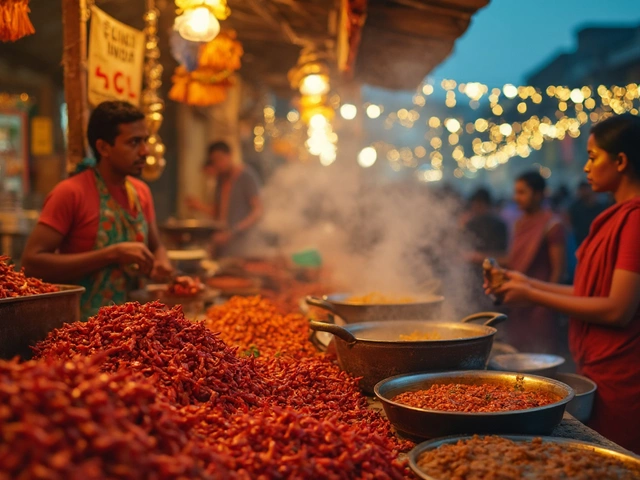People get excited about Ayurveda—it’s wild how a 5,000-year-old wellness system from India turns up in bustling LA juice bars, New York yoga studios, and even small Midwestern towns. But is it actually legal to practice Ayurveda in the United States, or are you risking hot water with the law? Some swear by Ayurvedic herbs, abhyanga massages, or even eating kitchari all week, while others wonder if it’s legal or safe. The answer’s not black and white, and what you’re allowed to do depends on your state, your training, and sometimes just the language you use to market yourself. Let’s break it down with real-world facts, honest tips, and a few surprises—because the rules about alternative medicine in the US are a wild ride.
What Is Ayurveda and Why Is It Gaining Ground in the USA?
Ayurveda means "knowledge of life,” and it’s less about swallowing a pill and more about getting your whole self—body, mind, digestion, even your sleep—back into sync. Think three doshas (Vata, Pitta, Kapha), lots of plant-based remedies, spices you can smell from down the hall, oil pours, bodywork, yoga, even daily rituals like tongue scraping and oil pulling. It’s full-on mind-body lifestyle. People in the US are jumping into Ayurveda for loads of reasons: chronic pain that won’t quit, stress, digestion that’s gone rogue, or just general curiosity—sometimes after a trip to India, a Netflix documentary, or honestly, when a doctor has no answers left. The push for integrative medicine is huge, too. Hospitals like the Cleveland Clinic and UCSF have talked openly about including Ayurveda in their integrative racks.
But Ayurveda isn’t some off-the-shelf system. The herbs can interact with medicine, the diagnostic terms (like “Dosha imbalance”) aren’t recognized by the FDA, and there are real debates in Congress and statehouses over licensing. In 2020, US market data put the US ayurvedic market at over $1.5 billion and growing, mostly in herbal products and skin care, but also in clinics and practitioner training programs. Celebs like Gwyneth Paltrow and Deepak Chopra keep talking it up. And in 2023, even the American Medical Association admitted that “interest in Ayurveda continues to increase” and urged doctors to inform themselves about it. But legality? That’s where it gets tricky.
Is Ayurveda Legal to Practice in the United States?
This is where it gets spicy. Ayurveda in USA isn’t illegal, but it also isn’t fully licensed r through federal law. You won’t find a national board certifying Ayurvedic doctors like you do with MDs or DOs. Instead, each state has its own say—think of it as a patchwork quilt. Some states are more open, and others are stricter on who gets to use certain words, give certain treatments, or even sell certain herbs. Florida and California, for example, let you practice Ayurveda as a health coach, wellness advisor, or massage therapist, but you can’t call yourself a "doctor" unless you have a MD license from a US school. Some states, like Colorado, have specific "unlicensed health care provider" laws. That means people can practice as long as they don’t say they are physicians and advise everyone up front that they’re not recognized by the state medical boards. New Mexico and Minnesota have similar “safe harbor” acts that let alternative healers, including herbalists and Ayurvedic practitioners, operate if they clearly state their credentials and scope.
Crucially, you can’t diagnose or treat diseases in a medical sense unless you have a state-approved medical license. But offering lifestyle advice (diet, stress management, routines, yoga poses, herbal teas) is legal wherever you are. And while over 20 states allow naturopaths (who sometimes include basic Ayurveda), only two—California and New Mexico—have colleges for Ayurvedic training recognized by the National Ayurvedic Medical Association (NAMA). Yes, there’s a national association, but it’s not a government board, so it’s more about networking and standards than legal power. In New York, Texas, and big parts of the Midwest, you can open an Ayurveda practice—as long as you avoid promising cures and stick to educational or lifestyle language.
What Regulation Means for Ayurvedic Practitioners and Clients
If you want to become an Ayurvedic practitioner in the States, nobody will arrest you for hanging up a shingle—just don’t promise miracles or call yourself a physician unless you’re licensed as one. The key is transparency. Practitioners often add big disclaimers on their websites, saying things like “Ayurveda is not a substitute for medical care” or “not intended to diagnose, treat, cure, or prevent any disease.” If you want to offer certain hands-on treatments (like abhyanga oil massage), most states require you to hold a separate massage therapy license. Some practitioners also get yoga teacher certifications or nutritionist credentials to boost credibility.
For patients, that means doing your homework. There are thousands of practitioners out there, some trained in India, some through online courses, and some who’ve picked it up through family. If titles confuse you, here’s a tip: "Ayurvedic Doctor" may sound impressive, but in the U.S., usually it just means someone finished a credentialed course, not a medical license. “Ayurvedic Health Counselor” or “Ayurveda Practitioner” are more accurate for U.S.-certified pros. If it comes to herbs or supplements, know that the FDA doesn’t approve Ayurvedic medicines, and there’s been trouble in the past with high heavy metal content in some imported products (lead and mercury showed up in a few studies out of Boston and Chicago). Always ask about sourcing and quality.
Insurance rarely covers ayurvedic consultations unless woven in as part of a broader integrative program. However, some Health Savings Accounts and Flexible Spending Accounts will allow payment for approved wellness services. If you’re really serious about making Ayurveda a career in the US, the most stable gigs are usually in wellness spas, yoga centers, or as private educators rather than as independent medical practitioners.

Which Ayurvedic Practices and Treatments Are Allowed in America?
If you were thinking of full-on Panchakarma—cleansing, herbal purges, oil streaming on the forehead—the answer is: kind of, but not everywhere and not in full. Simple stuff like dietary advice, lifestyle changes, personalized herbal teas, and guided breathwork or meditation almost never face legal trouble. The trick is avoiding medical diagnoses. If someone comes in with eczema, you can say, "Let's talk about foods that might trigger heat in your body code,” but you can’t say, “I will cure your disease.”
Here are some of the more common—and totally legal—Ayurvedic services in the US:
- Ayurvedic health consultations (dosha analysis, food and lifestyle advice)
- Custom herbal blends (as long as you don’t make medical claims and source quality-controlled herbs)
- Abhyanga and Shirodhara (as long as you’re also a state-licensed massage therapist)
- Ayurvedic cooking classes
- Yoga, pranayama, and guided meditation with ayurvedic lens
- Group wellness programs (Ayurveda 101, seasonal cleanses, etc.)
- Herbal sales through registered suppliers
The red flags go up if you want to offer treatments involving internal cleansing, invasive therapies (like enemas, or nasya if it involves substances in the nose), or prescribe certain restricted herbs. Remember, ayurvedic medicine in India can include things like leech therapy or heavy metals. In the States, that’s a no-go. Stick to dietary, lifestyle, and gentle external therapies and you’ll be fine.
Certification, Training, and How to Find Legit Ayurvedic Care in the US
If you're searching out practitioner, it’s tempting to jump on anyone with “doctor” in their email, but real pros will have proof of training. The most respected US institutions offering Ayurveda training are recognized by NAMA, which has three main levels of credentialing:
- Ayurvedic Health Counselor (600 hours)
- Ayurvedic Practitioner (1,500 hours)
- Ayurvedic Doctor (over 4,000 hours, plus internship)
Schools like the California College of Ayurveda and the Ayurvedic Institute in New Mexico are the standard-bearers. Graduates get coursework in nutrition, herbs, philosophy, clinical experience, and ethics. Some practitioners trained in India (as Bachelor of Ayurvedic Medicine and Surgery, or BAMS degrees) offer virtual or in-person consultations, with years of experience. But in the US, no matter what training you have—USA or India—you fall under state law.
How do you pick a safe practitioner? Ask about their hours of study, NAMA membership, where they get their herbs, and if they collaborate with your regular doctor. If it feels like a secret backroom operation, walk away. Transparency is king in Ayurveda stateside.
If you want to train yourself, online programs abound, but only a few are widely respected and carry weight for insurance or referrals. And if you’re a client, pay attention to how you feel: Ayurveda is all about personalization, so a cookie-cutter cleanse or one-size-fits-all detox is likely missing the point.
Big Myths and Smart Tips for Ayurveda Fans in America
There's plenty of confusion floating around. Myth number one: “Ayurveda will get you arrested in the US.” Nope. There’s no SWAT team for turmeric tea. But myth two: “Ayurvedic herbs are always safe and tested.” That’s wrong—herb blends, especially if imported unchecked, can be tainted or downright risky, so always buy from reputable suppliers.
States don’t regulate Ayurveda uniformly—California’s more open, Texas is stricter. Smart tip: No matter where you live, get a clear understanding of what the law says; a quick chat with your state’s Department of Health or a look at health freedom statutes is worth your while. Another tip: Find a practitioner who’s happy to coordinate with your MD and isn’t anti-vaccine or anti-science—that shows they care about your well-being more than ideology. And one more: Avoid anyone promising miracles or selling expensive, imported pills no doctor recognizes—those are red flags every time.
Ayurveda in America is here to stay. Is it regulated? Not fully. Is it legal? Yes, if you follow a few simple rules. And for most people, whether you’re seeking help for stress, skin, or sleep—or thinking of making a career out of Ayurveda in the US—there’s a place for it, as long as you keep it real, transparent, and a little bit curious.






Write a comment